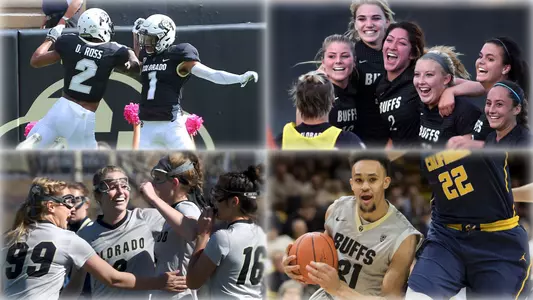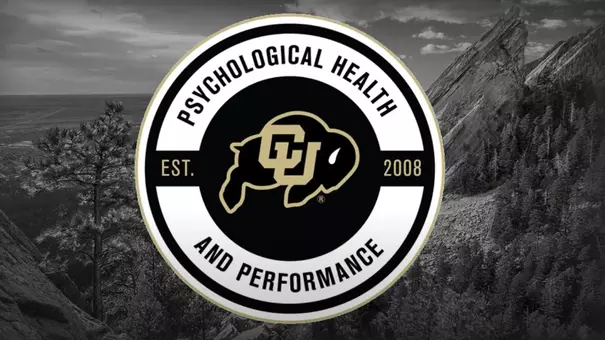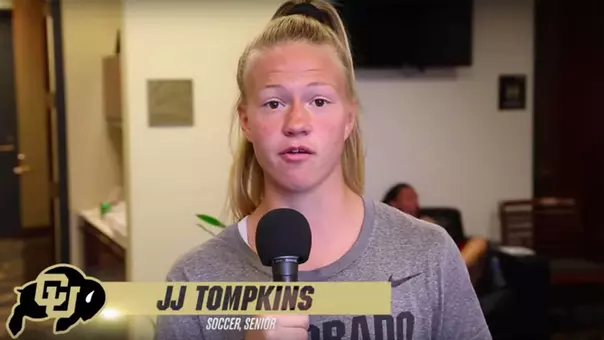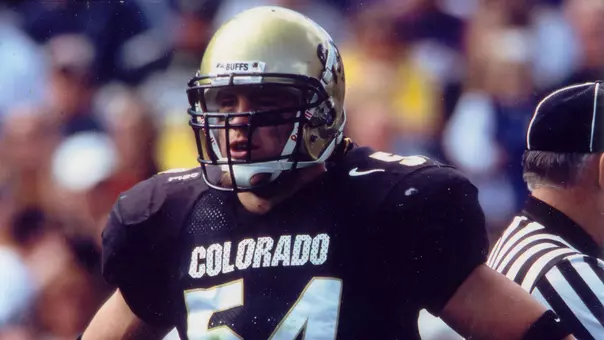Colorado University Athletics

CU Athletics Professionals To Speak At Mental Health Symposium
March 08, 2017 | Neill Woelk, Performance Nutrition, Psychological Health & Performance
BOULDER — Over the last several years, the University of Colorado Athletic Department has developed a holistic approach to student-athlete health that includes far more than dealing with broken bones and damaged tendons.
It also encompasses an incredibly important but often overlooked — or sometimes even ignored — part of the health spectrum: mental health.
"I think if you look at society in general today, mental health is still sort of that taboo topic that people don't really care to talk about," said Miguel Rueda, CU Associate Athletic Director for Health and Performance. "But there are more and more people who are saying, 'Hey, we need to talk about this. We need to address it.'
"What we're doing here at Colorado is understanding the mental health component as really just another part of the student-athlete's overall well-being. We need to have services for those issues and they need to be a part of our team and become part of a fluid process. That way, it's not, 'Mental health, you go here.' It's just health."
Saturday, Rueda and Dr. Chris Bader, CU's in-house Counseling and Sport Psychologist, will host a discussion about Colorado's process at "Athletes And Mental Health — A Community Approach," a symposium hosted by the CU Sports Medicine and Performance Center, the CU Athletic Department and the HOPE Coalition and BCH Foundation.
The symposium will be held from 8:30 a.m. to 12:30 p.m. at the CU Champions Center in the Stadium Club (3rd floor). Registration is available through Friday; and more information is available at http://www.hopecoalitionboulder.org/events/athletes/.
"In order to understand how athletics can affect mental health, it's critical to understand these assigned roles that you give people," Rueda said. "We say 'football player' and an image comes to mind. We don't even have to know anything about this person; we've already decided they are this way. If you say 'ultra-marathoner,' same thing. You have an identity that's sort of prescribed depending on your sport and you have to fit in that mold. There is pressure for athletes to adopt that identity."
That, Rueda said, can lead to issues that affect an athlete's health, performance and overall well-being.
"What we have to do is have that conversation that says, 'We can be individuals,'" Rueda said. "It's OK to be yourself within this sport and be different when society might say you are supposed to be a certain way."
Colorado is one of only a handful of athletic departments across the nation that provides in-house expertise in counseling and sports psychology. Bader's role is not only to talk with athletes as issues arise, but also provide "preventative" care as well as make sure others in the athletic department have an understanding of the field.
"I think that's one of the things within our athletic department that we've done really well," Bader said. "We're taking those steps to bring mental health into the picture as part of the picture. It's still incredibly stigmatized and I think we've done a nice job here of mixing me into the fold."
Both Bader and Rueda said the goal is to bring the entire spectrum of health and performance under one umbrella.
"There are still other places where student-athletes are oftentimes told to go across campus for their mental health needs," Bader said. "We want to have an all-encompassing approach where our trainers are mental-health informed, our doctors are mental-health informed, our dietitians are mental-health informed — and I am consequently informed on dietetics and physical health."
As Rueda said, "It's health and performance. It's not physical health, mental health and nutrition health and performance. It's health and performance, part of the holistic athlete."
Rueda has been a driving force in not only encouraging that mentality within the athletic department, but also helping implement it. After years as an athletic trainer, he found that nobody has all the answers — but everyone together can help find a solution.
"I don't have the answer, our psychologist doesn't have the answer, our physicians doesn't have the answer, our dietitians don't have the answer," Rueda said. "But together we can help solve the problem. It's a community approach to helping athletes with issues regarding identity, sport and mental health and it succeeds because we have a great collaborative group that communicates."
At Saturday's symposium, Rueda and Bader will host a breakout session entitled, "Holistic Approach to Mental Health: A Model for Success." They will share the techniques and practices they have developed and refined at CU and also discuss the topic with audience members.
"The next step for us is to spread the word beyond our walls here into the community," Bader said. "The idea behind the symposium is that the four entities co-hosting the event can open doors and show people what we're doing. We are providing a world-class, holistic experience for our student athletes and we'd like for people to see what Miguel oversees and what it means in the health and performance area."
The symposium's events will include three breakout sessions, as well as a panelist discussion moderated by former Colorado football player Derek McCoy. Another former Buff, Patrick Devenny, will be one of the panelists.
Along with Rueda's and Bader's presentation, breakout sessions will also include "Physical Manifestations of Mental Health" and "Healthy Coping Strategies: Exercise, Performance and Mental Health."
Contact: Neill.Woelk@Colorado.edu





